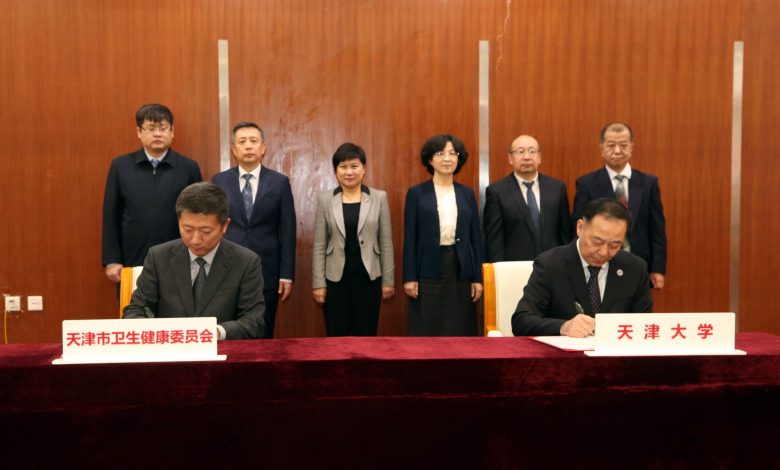University and Municipality Collaboration to Improve Healthcare with New Tianjin University Central Hospital

On December 4, Tianjin University and the Tianjin Municipal Health Commission signed an agreement to collaborate on the development of the Tianjin Third Central Hospital, which has now been renamed Tianjin University Central Hospital. This partnership aims to support the university’s “Double First-Class” development initiatives and improve healthcare standards in the Tianjin region.
Signing Ceremony and Officials Present
The signing ceremony was attended by prominent officials, including Vice Mayor Zhang Ling, along with representatives from various city departments. The agreement was signed by Tianjin University Party Secretary Yang Xianjin and Tianjin Municipal Health Commission Secretary and Director Wang Xudong.
About Tianjin University Central Hospital
Tianjin University Central Hospital is recognized as a large, comprehensive Class A tertiary institution that integrates medical care, education, research, and preventive services. It ranks among the top three hospitals in Tianjin in terms of the number of national standardized residency training programs it offers.
Historical Contributions
With a history spanning 67 years, the hospital has significantly contributed to the integration of medical education and engineering. Among its notable achievements is the development of China’s first “fine-tube artificial kidney” in 1960 and the founding of the Tianjin Biomedical Engineering Society.
Commitment to Medical Talent and Public Health
Yang Xianjin emphasized the long-standing goals of cultivating medical talent and ensuring public health. The university is committed to continuous reform and innovation within the healthcare sector, and this collaboration is expected to enhance the integration of medical education while addressing healthcare needs at national and regional levels.
Enhancements and Specializations
Wang Ximo, Party Secretary of the hospital, noted the new developmental opportunities arising from this partnership within the framework of the national medical system. Supported by the municipal government and the university, the hospital plans to enhance its specialization in areas such as digestive diseases, critical care, and geriatrics, along with advancing its capabilities in minimally invasive procedures and life support systems.
Interdisciplinary Medical Education
In recent years, Tianjin University has made significant strides in interdisciplinary medical education, developing a comprehensive educational system that includes four primary faculties: Medical, Pharmacy, Health, and Biology, along with several high-level tertiary affiliated hospitals. The institution aims to expand its medical talent pool, which includes a faculty team comprised of academicians and national-level experts.
Future Plans for Expansion
Future plans involve collaboration between Tianjin University and the Municipal Health Commission to establish sub-hospitals in the Hedong, Dongli, and Hebei districts. The project in the Dongli district will cover 128 acres with a building area of 260,000 square meters, necessitating an investment of nearly 3 billion yuan. It is anticipated that this project will be completed and operational by 2025, increasing the hospital’s capacity to 2,650 beds and enhancing services in key clinical specialties and patient experience.
(Source: Tianjin University)




